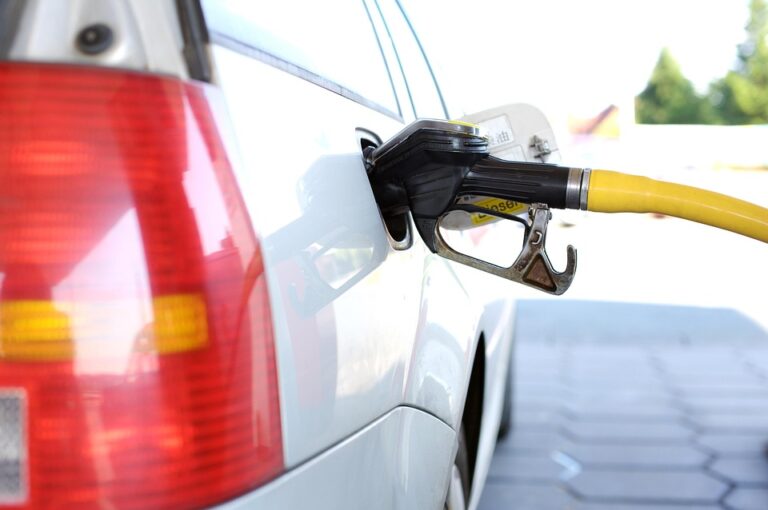The Science of Fuel Efficiency: Tips to Optimize Your Vehicle’s Performance
In today’s world, where fuel prices fluctuate and environmental concerns grow, understanding how to optimize your vehicle’s fuel efficiency is more crucial than ever. Whether you’re a daily commuter, a road trip enthusiast, or an occasional driver, implementing fuel efficiency tips can lead to significant savings and a reduced carbon footprint. This article dives into the science of fuel efficiency and offers practical tips to enhance your vehicle’s performance.
Understanding Fuel Efficiency
Fuel efficiency refers to how effectively your vehicle converts fuel into distance traveled. It’s often measured in miles per gallon (MPG) or liters per 100 kilometers (L/100km). Various factors influence your vehicle’s fuel efficiency, including engine design, weight, aerodynamics, and driving habits. By understanding these elements, you can take actionable steps towards improving your vehicle’s efficiency.
Engine Maintenance: A Critical Factor
One of the key areas to focus on when seeking to optimize fuel consumption is engine maintenance. A well-maintained engine not only enhances performance but also maximizes fuel efficiency. Here are some strategies to keep your engine running optimally:
- Regular Oil Changes: Engine oil plays a crucial role in reducing friction. Stick to your vehicle manufacturer’s recommended oil change schedule and opt for high-quality oil.
- Check Air Filters: A clean air filter ensures that your engine receives adequate airflow, directly affecting combustion efficiency. Check and replace air filters as needed.
- Spark Plug Maintenance: Worn or dirty spark plugs can hinder fuel combustion, leading to increased fuel consumption. Inspect and replace spark plugs according to your vehicle’s maintenance schedule.
Driving Habits: Adjusting Your Style
Your driving habits significantly affect your vehicle’s fuel efficiency. Here are some tips to adjust your driving style for better performance:
Smooth Acceleration and Deceleration
- Avoid Rapid Starts: Rapid acceleration can lead to a quick drain on fuel. Instead, gradually increase your speed.
- Use Cruise Control: When driving on highways, utilizing cruise control helps maintain a steady speed, often improving fuel economy.
Mind the Speed Limit
Driving at a moderate speed can have a significant impact on fuel efficiency. Most vehicles are designed to achieve optimal fuel efficiency between 45 and 65 mph. Exceeding this range often leads to increased drag and fuel consumption.
Reduce Idling Time
Idling consumes fuel without getting you anywhere. If you expect to be stopped for more than 30 seconds (except in traffic), it’s generally more fuel-efficient to turn off your engine. Many modern vehicles also come with start-stop technology, which automatically shuts off the engine when idling to save fuel.
Optimize Your Vehicle’s Load
The weight of your vehicle directly affects fuel efficiency. Here’s how to optimize the load:
- Lighten the Load: Remove unnecessary items from your vehicle’s trunk and cabin. Every extra pound requires more energy to move.
- Roof Racks and Carriers: If you’re not using a roof rack, remove it. Roof racks can create aerodynamic drag, significantly reducing fuel efficiency.
Tire Maintenance: A Simple Yet Effective Tip
Proper tire maintenance is often overlooked but plays a critical role in fuel efficiency. Here are some steps you can take:
- Maintain Optimal Tire Pressure: Under-inflated tires create more rolling resistance, requiring more fuel to maintain speed. Check your tire pressure monthly, and ensure they are inflated to the manufacturer’s recommended levels.
- Regular Tire Rotations: Uneven tire wear can lead to decreased traction and increased fuel consumption. Rotate your tires regularly to promote even wear.
Aerodynamics: Streamlining Your Vehicle
The design and aerodynamics of your vehicle can significantly impact fuel efficiency, especially at higher speeds. Consider the following tips for improving your car’s aerodynamics:
- Close Windows at High Speeds: Open windows create drag that can reduce fuel efficiency. Keeping windows closed when driving at high speeds is more fuel-efficient.
- Remove External Accessories: Items like bikes, skis, or cargo boxes can disrupt airflow, increasing drag. Remove them when not in use.
Consider Fuel Type and Quality
Using the correct fuel type is essential for optimal engine performance and fuel efficiency. Always refer to your manufacturer’s recommendations regarding the type of fuel to use. Additionally, consider choosing higher quality fuels with additives that can help in cleaning engine components, potentially leading to better fuel efficiency.
Conclusion: Embrace Efficiency Wisely
Understanding and implementing these fuel efficiency tips can not only save you money but also contribute to a greener planet. From maintaining your engine to adjusting your driving habits, small changes can lead to significant improvements in fuel consumption. Begin by assessing your current practices and taking small steps toward optimization.
Ultimately, the science of fuel efficiency encompasses a holistic approach involving vehicle maintenance, driving style, and even the types of fuel used. By remaining informed and proactive, you can optimize your vehicle’s performance, ensuring a smoother ride while saving on fuel costs. For more practical automotive insights, stay tuned to our articles at Buzzo.live—your go-to source for all things automotive!


